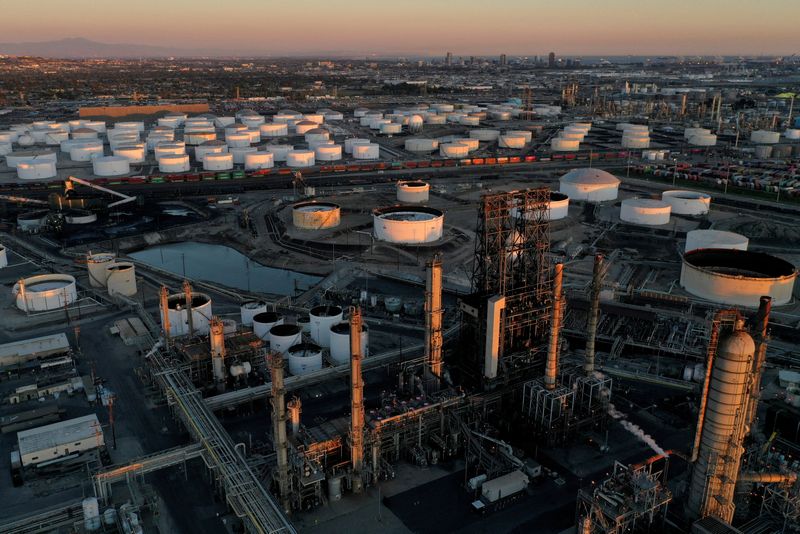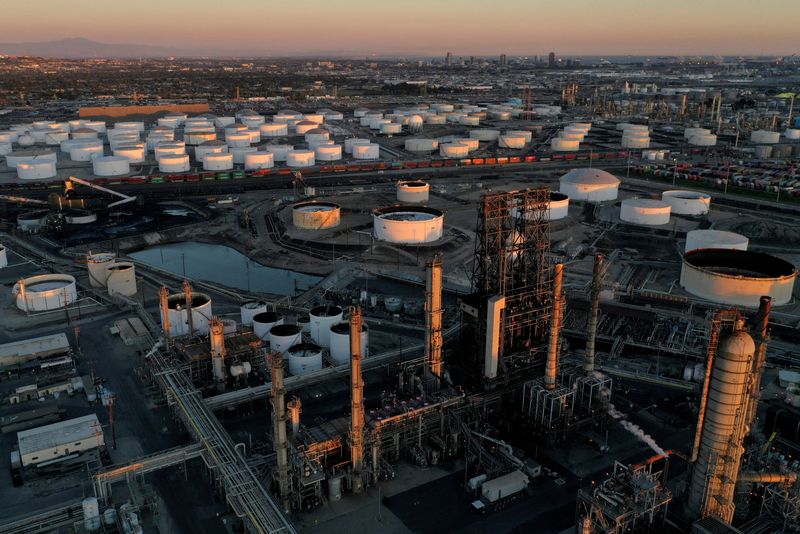
By Ahmad Ghaddar
LONDON (Reuters) -Oil prices rose on Wednesday on expectations that U.S. crude and gasoline inventories fell last week, but further gains were limited by the restart of output in the U.S. Gulf as the threat from Hurricane Beryl faded and slack Chinese consumer demand.
Brent futures were up 19 cents, or 0.2%, at $84.85 a barrel at 1013 GMT, after falling 1.3% in the previous session.
U.S. West Texas Intermediate (WTI) crude was up 28 cents, or 0.3%, to $81.69 a barrel, after falling 1.1% in the previous session.
U.S. crude oil and gasoline inventories fell by 1.923 million barrels and 2.954 million barrels, respectively, according to market sources who cited American Petroleum Institute figures on Tuesday. [API/S]
Official data from the U.S. Energy Information Administration will be released at 1430 GMT. [EIA/S]
Both contracts ended the previous three sessions lower on signs that the Texas energy industry came off relatively unscathed from Hurricane Beryl after it lashed the region on Monday.
Oil and gas companies restarted some operations on Tuesday. Some ports reopened and most producers and facilities were ramping up output, although some facilities sustained damage and power has not been fully restored yet.
“The latest bout of selling can be attributed to two major factors: the potential revival of truce talks between Israel and Hamas and Hurricane Beryl,” PVM Oil analyst Tamas Varga said.
In the Middle East, negotiations to secure a ceasefire in the Gaza war will resume in Doha, with the intelligence chiefs of Egypt, the United States, and Israel in attendance.
Concerns over demand in China also weighed on prices as consumer prices in the world’s second-largest economy grew for a fifth month in June, but missed expectations, while producer price deflation persisted.
Meanwhile, comments from U.S. Federal Reserve Chair Jerome Powell suggested the case for interest rate cuts is becoming stronger.

Lower interest rates should spur economic growth, and therefore, oil consumption.
Following Powell’s comments, investors continued to bet on a nearly 70% chance the Fed will cut rates in September, the CME’s FedWatch tool showed.
This post is originally published on INVESTING.




